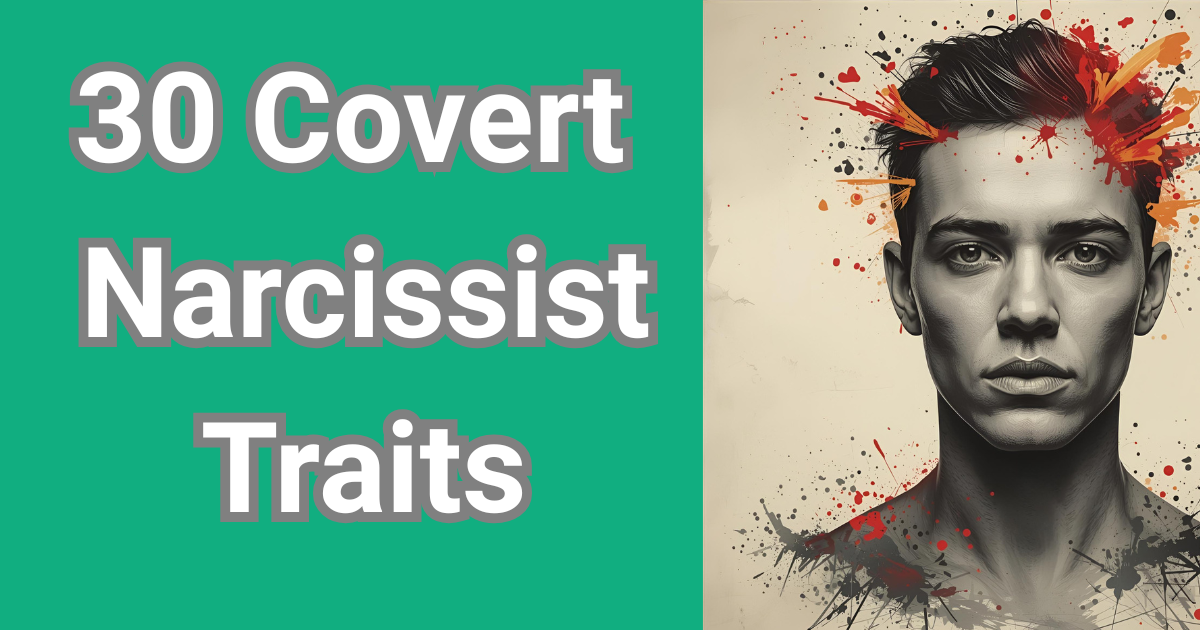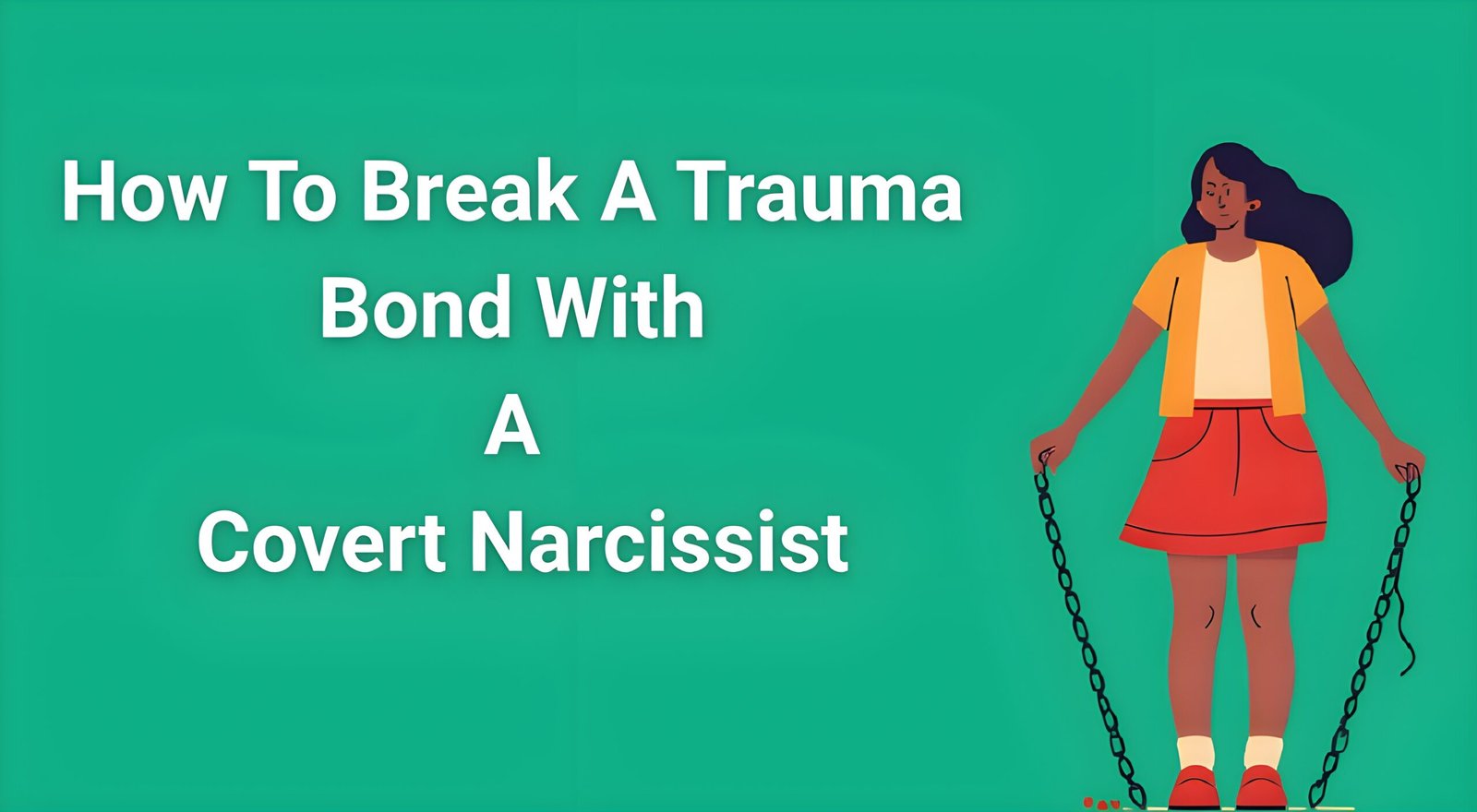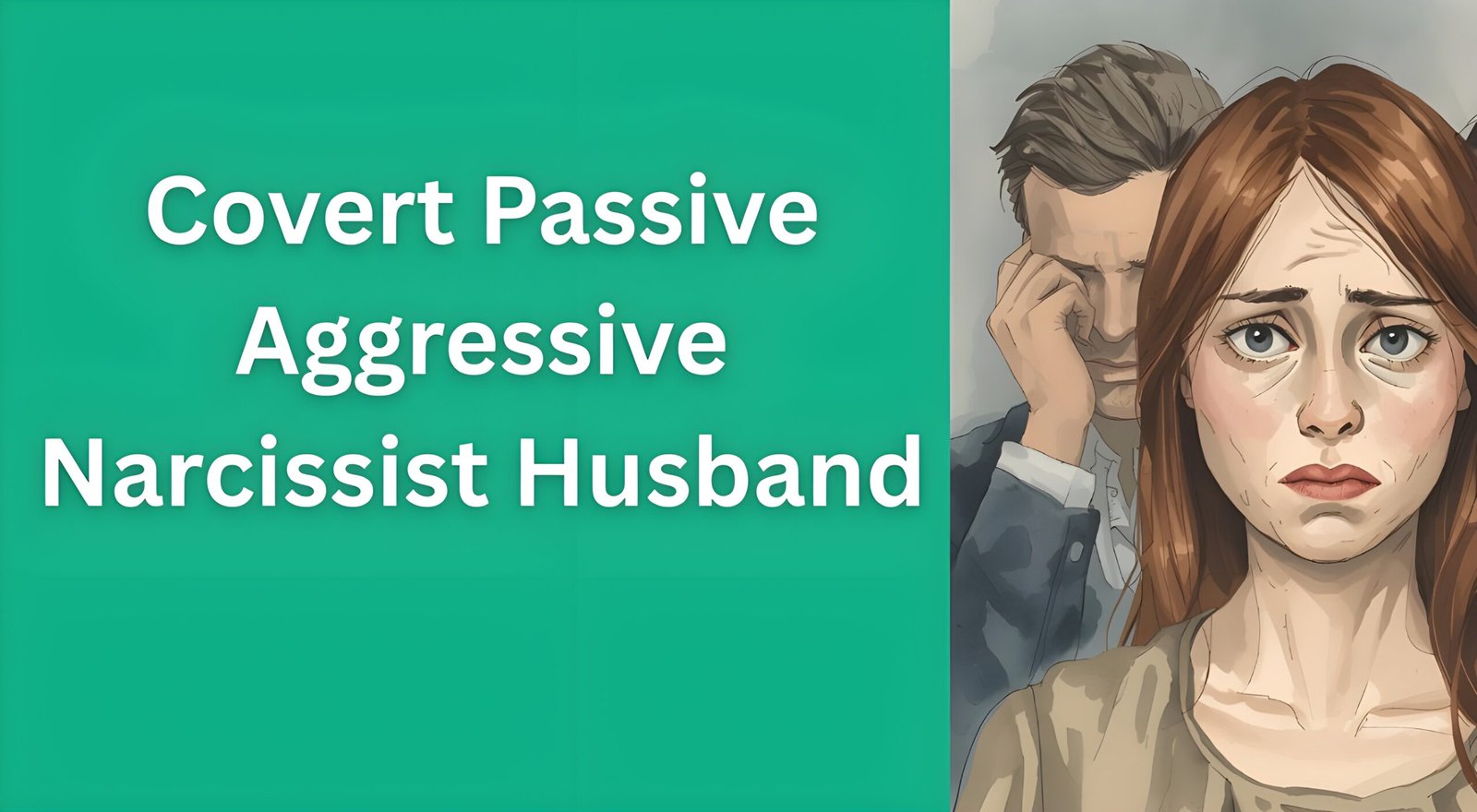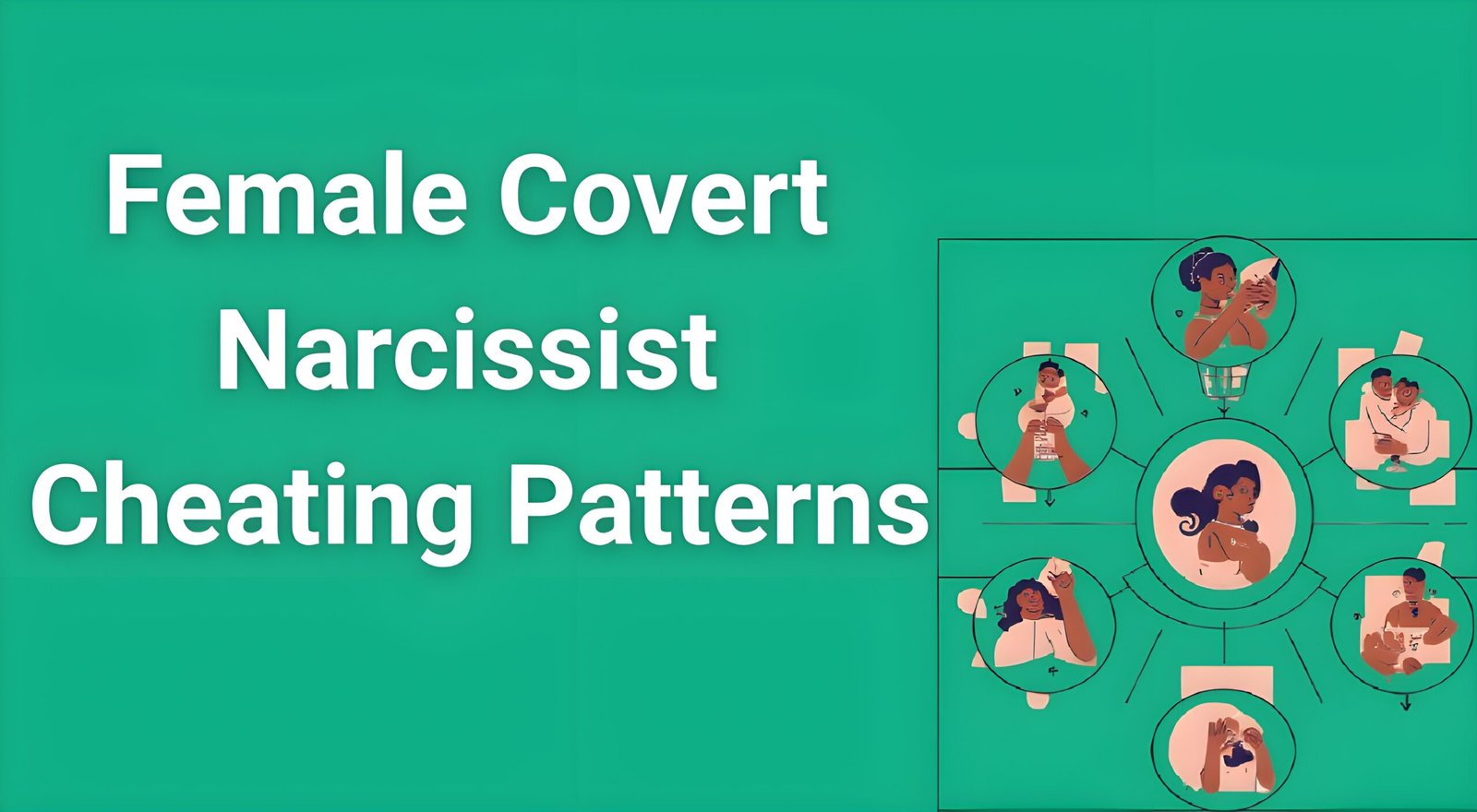That sinking feeling in your stomach when they walk into the room isn’t intuition—it’s your nervous system recognizing danger. If you’ve been questioning whether you’re dating a covert narcissist, that internal alarm system is likely trying to protect you from psychological manipulation so subtle, even trained therapists sometimes miss it.
- What Makes Covert Narcissism So Dangerous?
- 12 Hidden Signs You’re Dating a Covert Narcissist
- The Psychological Impact of Dating a Covert Narcissist
- Understanding the Covert Narcissist’s Motivation
- Breaking Free From the Covert Narcissist’s Web
- Protecting Yourself: Red Flags to Watch For
- The Recovery Process: Healing From Covert Narcissistic Abuse
- Understanding Trauma Bonds and Addiction-Like Attachment
- Building Healthy Relationships After Covert Narcissistic Abuse
- When You Can’t Leave Immediately
- Professional Help and Resources
- Frequently Asked Questions
- Conclusion
Unlike the loud, obviously self-centered narcissist who dominates every conversation, dating a covert narcissist feels like drowning in confusion. They appear sensitive, vulnerable, and deeply caring—until you’re left wondering why you feel emotionally depleted, questioning your own memories, and walking on eggshells in your own relationship.
The statistics are staggering: approximately 6% of the population has narcissistic personality disorder, with covert narcissism being significantly underdiagnosed due to its hidden nature. This means millions of people are unknowingly trapped in relationships with master manipulators who specialize in making their victims feel crazy.
What Makes Covert Narcissism So Dangerous?
Understanding covert narcissism requires recognizing its fundamental difference from grandiose narcissism. While grandiose narcissists announce their superiority loudly, covert narcissists achieve the same sense of specialness through playing the victim, appearing humble, and using emotional manipulation to maintain control.
Am I Dealing With a Covert Narcissist — or Just Toxic Behavior?
Covert narcissists are emotional chameleons. They study you intensely during the early relationship phase, mirroring your values, interests, and dreams to create an illusion of perfect compatibility. This isn’t love—it’s strategic data collection for future manipulation.
The trauma bond created by dating a covert narcissist operates like a psychological addiction. The intermittent reinforcement of affection and cruelty creates neurochemical patterns in your brain similar to substance dependency, making it incredibly difficult to leave even when you logically know something is wrong.
12 Hidden Signs You’re Dating a Covert Narcissist
1. They’re the Ultimate Victim in Every Story
When dating a covert narcissist, you’ll notice they have an endless supply of heartbreaking stories about how others have wronged them. Every ex was “crazy,” every boss was “jealous,” every friend eventually “betrayed” them. They position themselves as the perpetual victim of circumstances beyond their control.
This victim narrative serves multiple purposes: it generates sympathy and nurturing behavior from you, deflects responsibility for their own actions, and establishes a pattern where you’re always trying to “save” them from their troubles. Pay attention to whether they ever take accountability for relationship conflicts or if there’s always someone else to blame.
2. Love-Bombing Followed by Subtle Withdrawal
The early stages of dating a covert narcissist feel intoxicating. They shower you with attention, claim you’re “different from everyone else,” and move the relationship forward at breakneck speed. This love-bombing phase is designed to create emotional dependency before the manipulation begins.
Once they sense you’re invested, the subtle withdrawal starts. They become less available, their responses become shorter, and that intense attention gets redirected elsewhere. This isn’t natural relationship progression—it’s calculated emotional conditioning designed to keep you pursuing them.
3. Masters of Passive-Aggressive Communication
Covert narcissists rarely express anger directly. Instead, they use passive-aggressive tactics like silent treatment, subtle sarcasm, “forgetting” important events, or making hurtful comments disguised as jokes. When confronted, they act innocent: “I was just kidding” or “You’re being too sensitive.”
This communication style keeps you constantly off-balance. You know something feels wrong, but you can’t quite articulate what they did wrong, making you question your own perceptions and reactions.
4. They Exploit Your Empathy and Kindness
Covert narcissists are experts at identifying highly empathetic people and exploiting their natural desire to help others. They present themselves as wounded souls who just need the right person to understand them. Your compassionate nature becomes their primary source of narcissistic supply.
They’ll share tragic backstories, current struggles, and vulnerabilities that trigger your protective instincts. However, you’ll notice that your efforts to support them are never quite enough, and they rarely reciprocate when you need emotional support.
5. Gaslighting That Makes You Question Reality
Dating a covert narcissist involves constant reality distortion. They’ll deny conversations that clearly happened, rewrite history to make themselves look better, or claim you “misunderstood” their obviously hurtful behavior. This gaslighting is often subtle and delivered with apparent confusion rather than aggression.
Over time, you begin doubting your own memory, perception, and judgment. You might find yourself saying things like “Maybe I’m remembering it wrong” or “Am I being too sensitive?” This self-doubt is exactly what they want to cultivate.
6. Jealousy Disguised as Concern
Covert narcissists are intensely jealous but rarely express it directly. Instead, they use “concern” to isolate you from supportive relationships. They might say things like “I’m worried about how your friend influences you” or “Your family doesn’t seem to appreciate you like I do.”
This false concern gradually separates you from your support network, making you more dependent on them for validation and reality-checking. They want to be your primary source of information about yourself and the world.
7. Emotional Vampirism and Energy Depletion
Perhaps the most telling sign of dating a covert narcissist is the profound exhaustion you feel after spending time with them. Despite their apparent sensitivity and need for your support, interactions leave you feeling drained rather than energized.
This happens because covert narcissists are emotional vampires. They extract your emotional energy through constant drama, subtle criticism, and demands for reassurance, while giving very little genuine emotional nourishment in return.
8. Grandiosity Hidden Behind False Humility
While overt narcissists boast openly, covert narcissists express their sense of superiority through false humility and subtle put-downs. They might say things like “I’m probably not smart enough to understand, but…” before delivering a condescending explanation, or “I don’t mean to criticize, but…” before pointing out your flaws.
This allows them to maintain their image as humble and supportive while still positioning themselves as superior to you and others.
9. Boundary Violations Presented as Love
Covert narcissists consistently violate your boundaries while making it seem like their violations come from a place of caring. They might read your private messages “because they’re worried about you,” show up uninvited “because they missed you,” or make major decisions for you “because they know what’s best.”
These boundary violations are testing mechanisms. They’re seeing how much control they can exert while maintaining the illusion that their behavior is motivated by love and concern.
10. They Never Accept Responsibility or Apologize Sincerely
When dating a covert narcissist, genuine apologies are rare or non-existent. If they do apologize, it comes with conditions, excuses, or is followed by explanations of how you contributed to the problem. Real accountability threatens their carefully constructed image of moral superiority.
Instead of taking responsibility, they use deflection, blame-shifting, and playing the victim when confronted about their hurtful behavior. This pattern prevents genuine conflict resolution and relationship growth.
11. Hot and Cold Behavior That Keeps You Hooked
Covert narcissists are masters of intermittent reinforcement. They alternate between being incredibly loving and supportive, then distant and critical. This unpredictable pattern creates a trauma bond that keeps you constantly trying to get back to the “good times.”
This hot and cold behavior isn’t accidental—it’s a control mechanism. The uncertainty keeps you hyper-focused on their moods and behavior, gradually making their emotional state more important than your own well-being.
12. They Make You Feel Like You’re “Too Much”
One of the most insidious aspects of dating a covert narcissist is how they make you feel like your normal emotional needs are excessive. When you express hurt, need reassurance, or want to discuss relationship issues, they respond with sighs, eye rolls, or comments about how “dramatic” or “needy” you’re being.
This creates shame around your natural human needs for connection, validation, and emotional security. Over time, you learn to suppress your needs to avoid being labeled as “too much,” effectively silencing your inner voice.
The Psychological Impact of Dating a Covert Narcissist
The effects of dating a covert narcissist extend far beyond the relationship itself. Victims often experience symptoms similar to post-traumatic stress disorder, including anxiety, depression, hypervigilance, and difficulty trusting their own perceptions.
The constant gaslighting and emotional manipulation can lead to a condition called “complex trauma,” where your nervous system remains in a state of chronic activation. This manifests as difficulty sleeping, racing thoughts, emotional numbness, or overwhelming anxiety in seemingly normal situations.
Many people who’ve experienced covert narcissistic abuse report feeling like they’ve lost their sense of self. The constant adaptation to their partner’s unpredictable moods and the suppression of their own needs creates a disconnection from their authentic thoughts, feelings, and desires.
Understanding the Covert Narcissist’s Motivation
Covert narcissists aren’t necessarily conscious of their manipulative behavior. Their actions stem from deep-seated insecurity and an inability to form genuine emotional connections. They’ve learned to extract what they need from relationships through manipulation because they lack the emotional skills for authentic intimacy.
This doesn’t excuse their behavior, but understanding their motivation can help you recognize that their treatment of you isn’t a reflection of your worth. Their inability to love genuinely is their limitation, not your failure.
The covert narcissist’s need for control stems from their terror of abandonment and their inability to maintain self-esteem without external validation. They create chaos and dependency in relationships because genuine partnership requires emotional skills they never developed.
Breaking Free From the Covert Narcissist’s Web
Recognizing you’re dating a covert narcissist is the first step toward reclaiming your power. However, breaking free requires more than just intellectual understanding—it requires rewiring the trauma bonds that keep you attached to someone who hurts you.
The process of leaving a covert narcissist often involves grieving not just the relationship, but the person you thought they were. The loving, sensitive partner you fell for was a carefully constructed persona designed to hook you emotionally. Accepting this reality is painful but necessary for healing.
Professional support is crucial when dealing with covert narcissistic abuse. A therapist trained in narcissistic abuse can help you rebuild your sense of reality, develop healthy boundaries, and process the complex trauma that often results from these relationships.
Protecting Yourself: Red Flags to Watch For
Prevention is always preferable to recovery. When meeting new potential partners, watch for these early warning signs that might indicate covert narcissistic tendencies:
Excessive charm and attention in the early dating phase, especially if it feels too intense too quickly. Healthy relationships develop gradually, while covert narcissists rush intimacy to create dependency before their mask slips.
Pay attention to how they speak about their past relationships and other people in their life. If everyone else is always the problem and they’re always the victim, this is a significant red flag that indicates a lack of self-awareness and accountability.
Notice their reaction to boundaries and disagreement. Healthy partners respect your limits and can engage in constructive conflict. Covert narcissists will test boundaries and make you feel guilty for having different opinions or needs.
The Recovery Process: Healing From Covert Narcissistic Abuse
Recovery from dating a covert narcissist involves several phases. Initially, you might experience a period of relief mixed with intense grief as you process the reality of the relationship. This is normal and healthy—you’re mourning the loss of who you thought they were.
The next phase often involves rebuilding your sense of reality and self-trust. Covert narcissistic abuse specifically targets your ability to trust your own perceptions, so healing requires consciously rebuilding confidence in your own judgment and intuition.
Reconnecting with your authentic self is perhaps the most important aspect of recovery. After months or years of suppressing your needs and adapting to someone else’s emotional demands, you need to rediscover who you are and what you actually want from life and relationships.
Understanding Trauma Bonds and Addiction-Like Attachment
The reason it’s so difficult to leave a covert narcissist isn’t weakness—it’s brain chemistry. The cycle of love-bombing and withdrawal creates neural pathways similar to addiction, making the thought of leaving feel physically and emotionally unbearable.
These trauma bonds are reinforced every time they show you affection after a period of coldness or cruelty. Your brain releases dopamine and relief chemicals, creating a powerful association between their presence and emotional relief, even though they caused the pain in the first place.
Breaking trauma bonds requires understanding that your attachment isn’t based on love—it’s based on neurochemical conditioning. Professional resources and support systems specifically designed for narcissistic abuse recovery can provide the structured approach needed to rewire these patterns safely.
For those struggling with the compulsive need to check their social media, return to the relationship despite knowing it’s harmful, or feeling physically ill when trying to maintain distance, specialized trauma bond recovery programs can provide the neurological understanding and practical tools needed to break free permanently.
Building Healthy Relationships After Covert Narcissistic Abuse
One of the most common fears after dating a covert narcissist is whether you’ll ever be able to trust someone again or have a healthy relationship. The good news is that with proper healing and support, many survivors go on to have deeply fulfilling, authentic relationships.
However, recovery isn’t automatic. It requires conscious work to rebuild your ability to recognize red flags, maintain boundaries, and trust your instincts. Many survivors benefit from working with professionals who understand the specific challenges of recovering from covert narcissistic abuse.
The silver lining of surviving this experience is that it often leads to a much deeper understanding of healthy relationship dynamics. Survivors frequently report that their post-recovery relationships are more authentic and satisfying than anything they experienced before, because they’ve learned to value genuine connection over the artificial intensity of trauma bonding.
Still Living With Them? You’re Not Helpless.
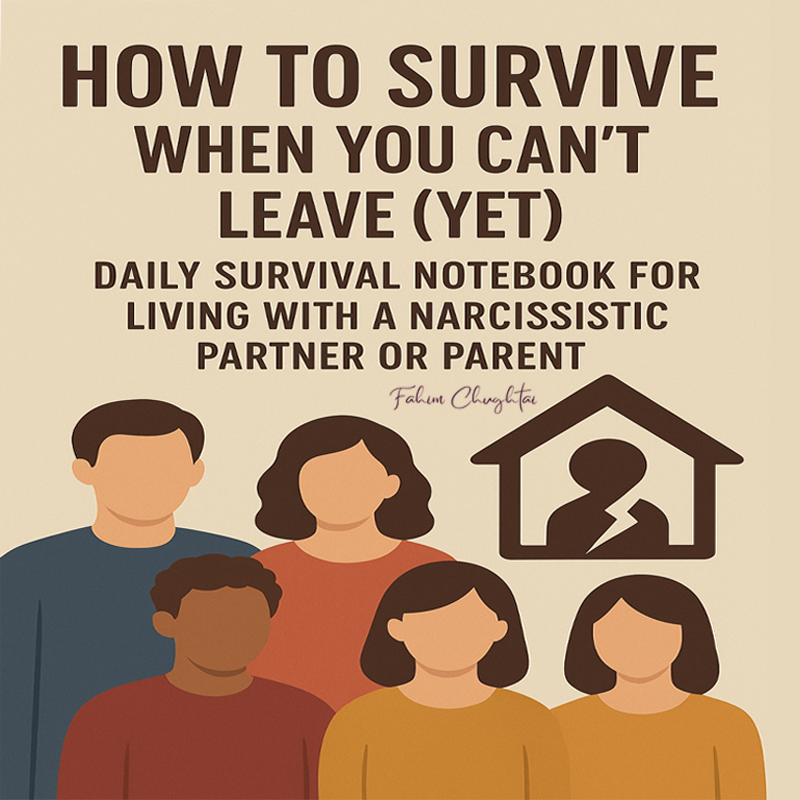
When You Can’t Leave Immediately
Not everyone can leave immediately upon recognizing they’re dating a covert narcissist. Financial dependence, shared children, legal complications, or safety concerns might require a more gradual exit strategy.
If you’re in this situation, focus on building internal resources while planning your exit. This includes reconnecting with supportive friends and family, seeking professional guidance, and developing financial independence when possible.
Maintaining your sanity while still in the relationship requires strong internal boundaries. This means emotionally detaching from their drama, refusing to engage in circular arguments, and protecting your energy by limiting how much emotional investment you make in their problems or moods.
For those who must stay temporarily, having a comprehensive safety and sanity protection strategy becomes crucial. This involves learning specific techniques for emotional detachment, maintaining connection to reality, and building the internal strength needed to eventually break free safely.
You’ve Seen the Patterns. Now Break the Bond.
Professional Help and Resources
Recovering from covert narcissistic abuse often requires specialized support. Traditional couples therapy is typically not recommended when one partner has narcissistic tendencies, as they often use therapy sessions to further manipulate and gaslight their partner.
Instead, individual therapy with a professional trained in narcissistic abuse can provide the validation, reality-checking, and healing strategies needed for recovery. These professionals understand the unique challenges of covert narcissistic abuse and can help you rebuild your sense of self and develop healthy relationship skills.
Support groups, both online and in-person, can provide connection with others who understand your experience. The isolation that often accompanies covert narcissistic abuse makes community support particularly valuable for healing.
For those seeking immediate clarity about their situation, professional analysis of specific relationship dynamics can provide the validation and understanding needed to make informed decisions about your future. Getting an expert perspective on your experiences can be the first step toward reclaiming your power and sanity.
Frequently Asked Questions
Q: How long does it take to recover from dating a covert narcissist?
A: Recovery timelines vary greatly depending on the length and intensity of the relationship, your support system, and whether you seek professional help. Most people begin feeling significantly better within 6-12 months of no contact, but full healing can take 2-3 years.
Q: Can a covert narcissist change with therapy?
A: While personality disorders can improve with intensive therapy, the prognosis for narcissistic personality disorder is generally poor because it requires the person to acknowledge their behavior is problematic, which conflicts with their fundamental worldview.
Q: How do I know if I’m the narcissist in the relationship?
A: The fact that you’re asking this question and engaging in self-reflection suggests you’re not the narcissist. Actual narcissists rarely question their behavior or seek information about narcissism unless it’s to better understand how to manipulate others.
Q: Should I tell friends and family about my partner’s narcissistic behavior?
A: Yes, having reality-checks from trusted people is crucial when dealing with gaslighting. However, be prepared that others might not immediately understand, especially if the covert narcissist has charmed them.
Q: Is it possible to have a healthy relationship after dating a covert narcissist?
A: Absolutely. With proper healing, boundary development, and often professional support, many survivors go on to have deeply satisfying, authentic relationships. The key is addressing the trauma bonds and trust issues before entering a new relationship.
Conclusion
Dating a covert narcissist is one of the most confusing and psychologically damaging experiences in relationships. The subtle nature of their manipulation makes it difficult to identify what’s happening until significant emotional damage has occurred.
If you recognize yourself in these patterns, please know that your confusion and pain are valid. The fact that you’re questioning the relationship dynamics shows strength and self-awareness, not weakness or oversensitivity.
Recovery is possible, but it requires acknowledging the reality of what you’ve experienced and often seeking professional support. The person you fell for was a carefully constructed facade designed to exploit your empathy and kindness. Healing involves grieving this loss while rebuilding your connection to your authentic self.
Your intuition brought you to this article for a reason. Trust that inner voice that’s been trying to protect you, even when external circumstances make leaving feel impossible. You deserve a relationship that energizes rather than depletes you, that builds you up rather than tears you down, and that honors your worth rather than exploiting your kindness.
The journey toward freedom and healing starts with a single step: acknowledging that what you’ve experienced isn’t love—it’s manipulation disguised as love. From that foundation of truth, you can begin building the authentic, healthy relationship you deserve, starting with the most important one—the relationship with yourself.



